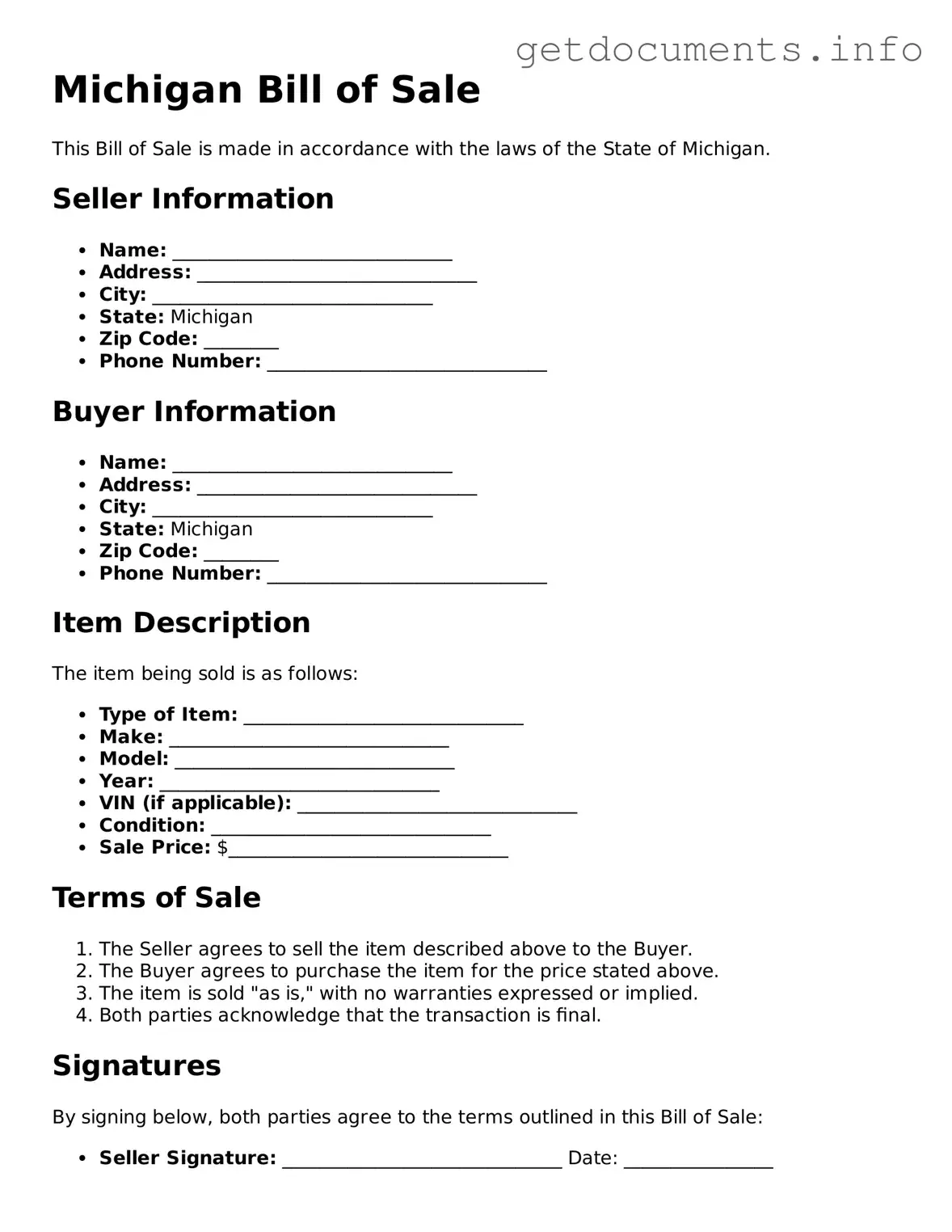Free Bill of Sale Template for Michigan
A Michigan Bill of Sale form is a legal document that records the transfer of ownership of personal property from one person to another. This form serves as proof of purchase and includes important details about the transaction. If you need to complete a Bill of Sale, you can easily fill out the form by clicking the button below.
Access Bill of Sale Editor

Free Bill of Sale Template for Michigan
Access Bill of Sale Editor
Got places to be? Complete the form fast
Fill out Bill of Sale online and avoid printing or scanning.
Access Bill of Sale Editor
or
⇩ PDF File
